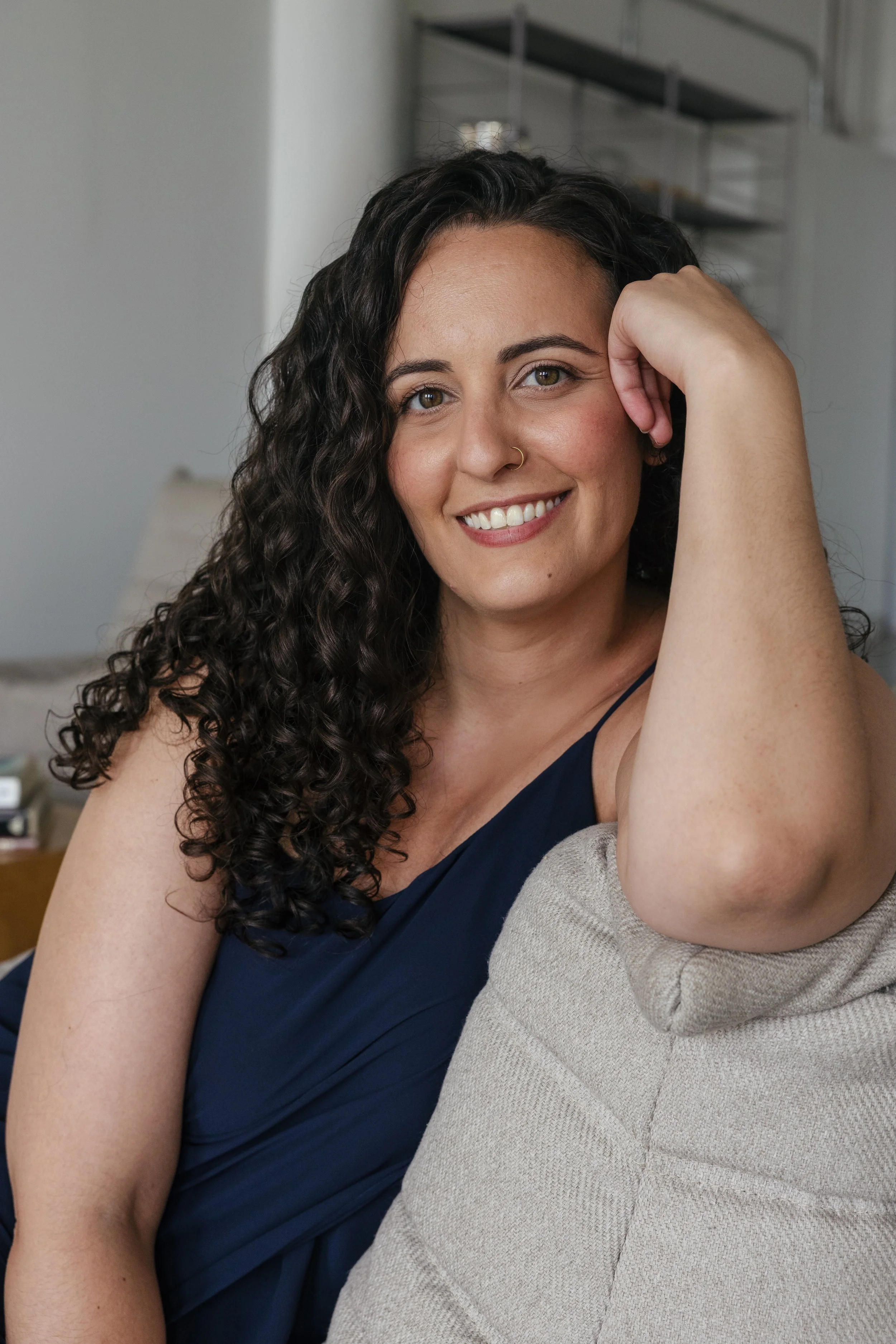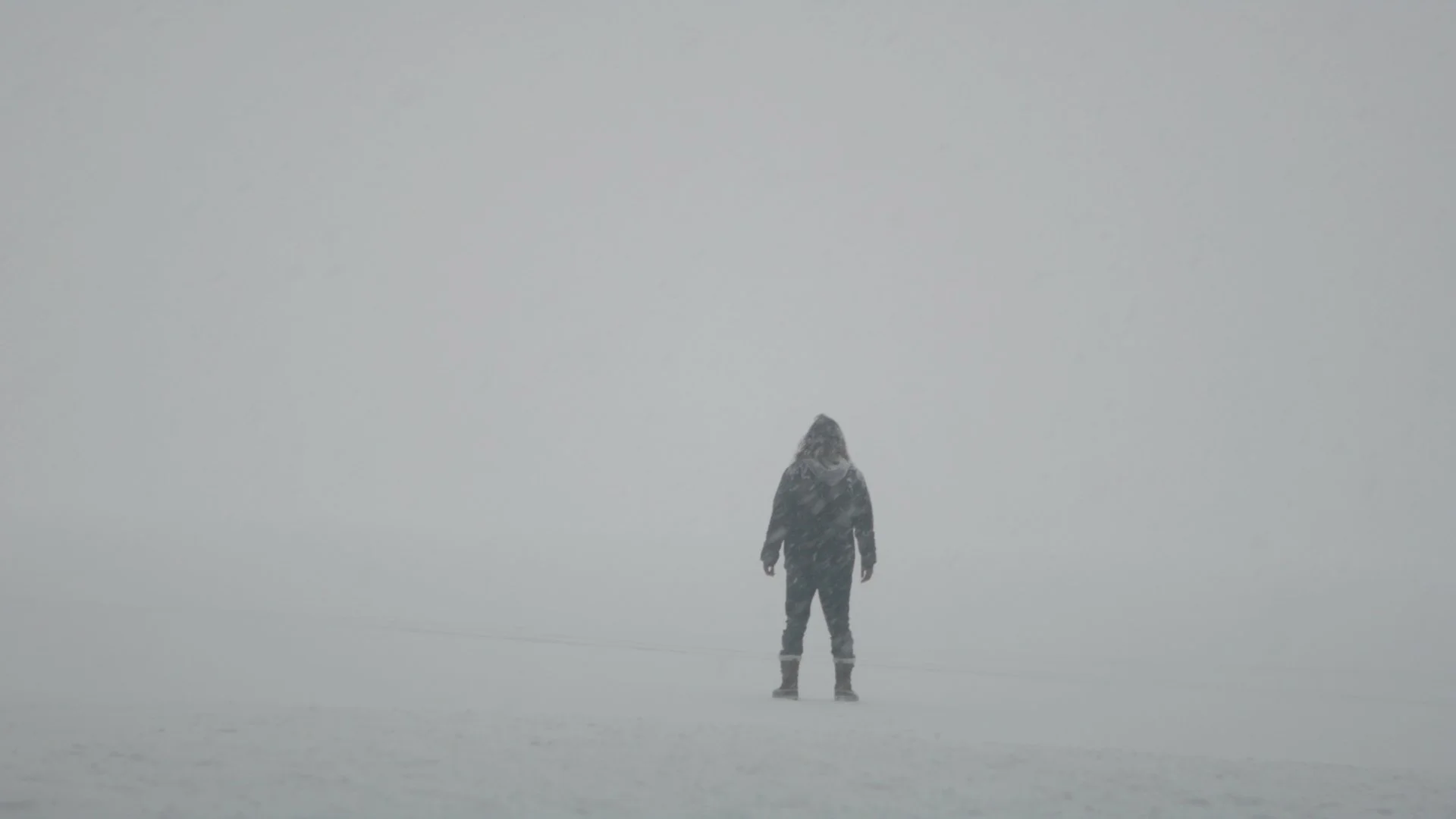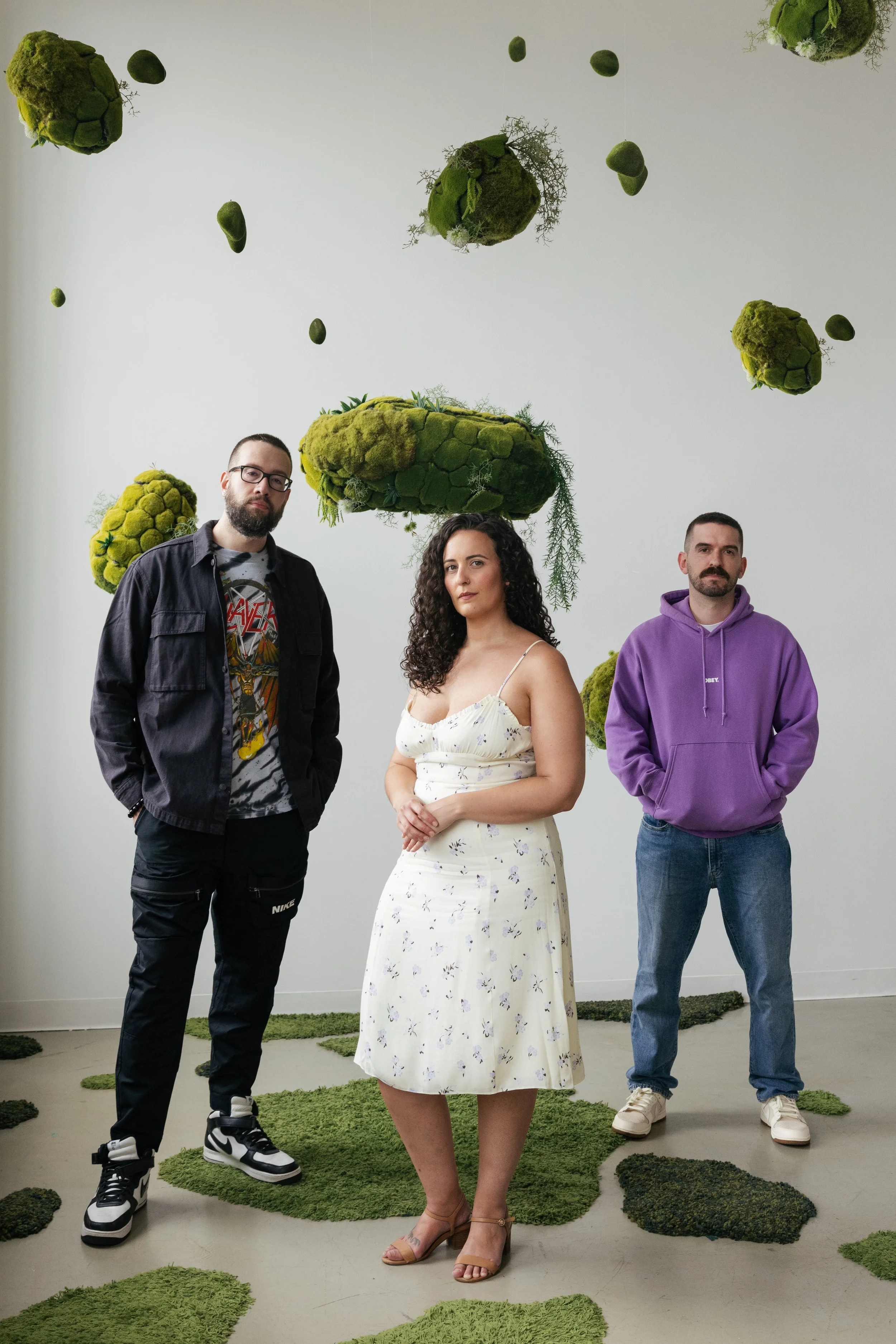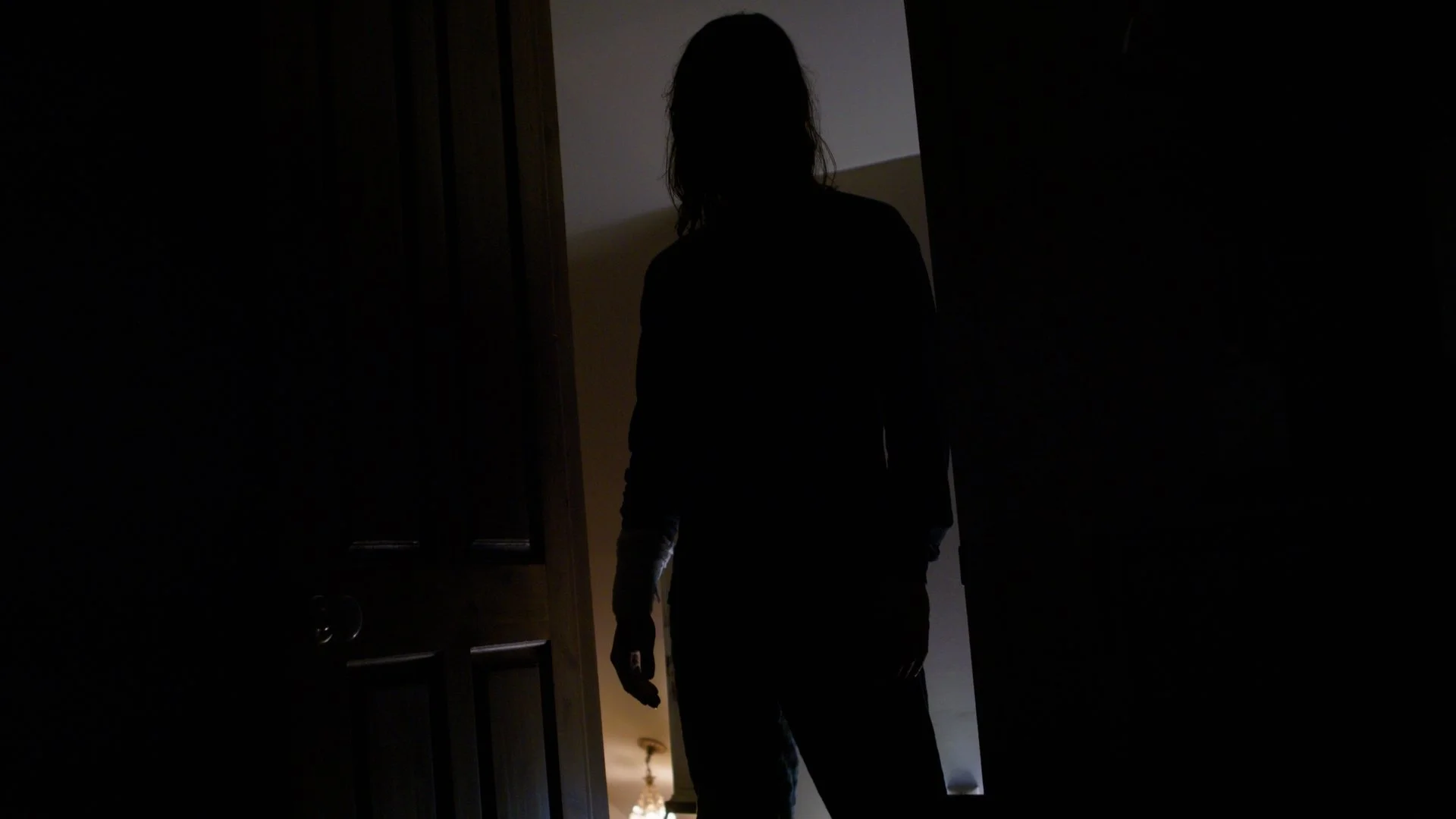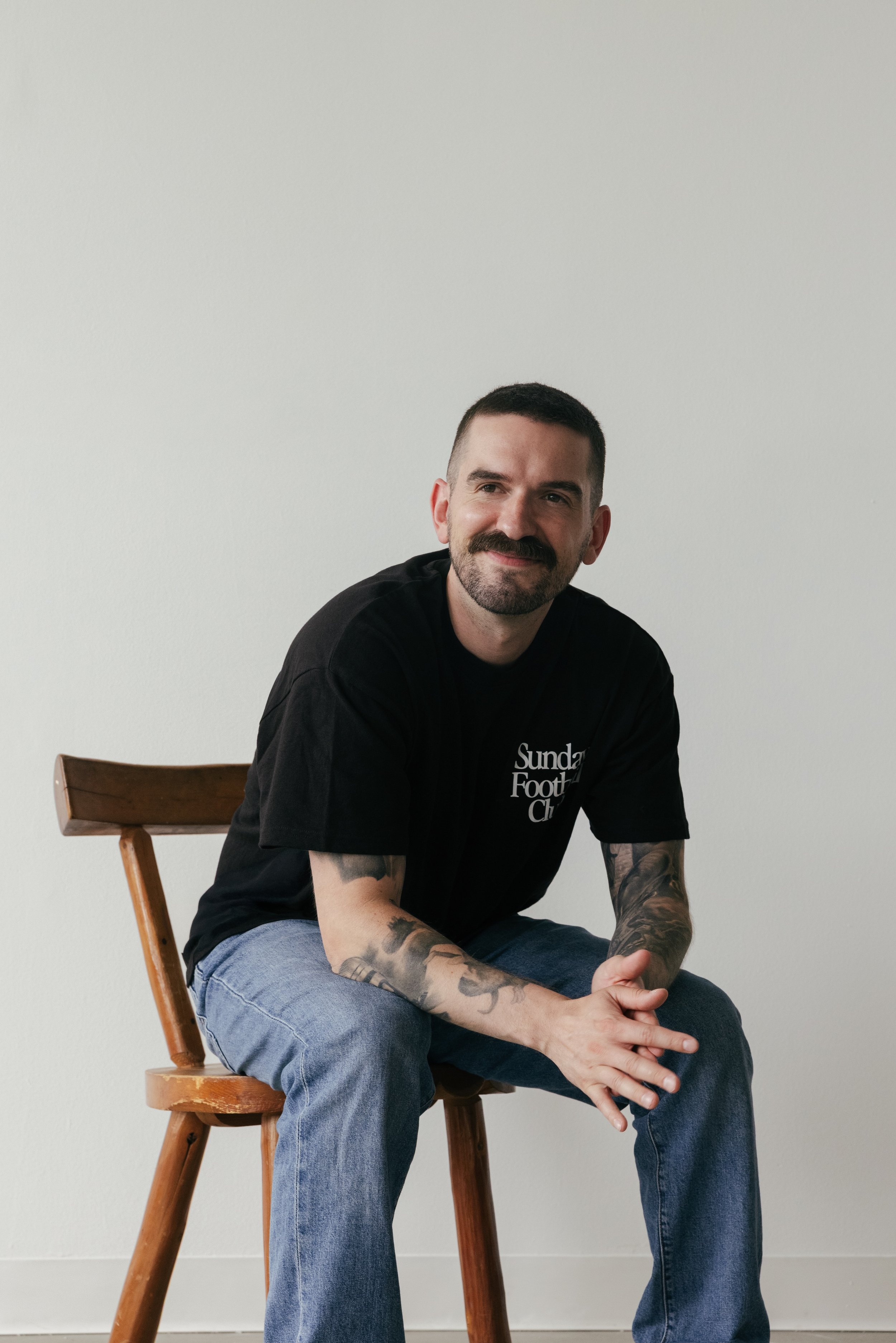There is a special energy that comes from talking with filmmakers who truly understand horror, people who do not just love the genre but respect its craft, its history, and its emotional weight. Sitting down with Jay Drakulic, Mallory Drumm, and Alex Lee Williams, the trio behind Dream Eater, felt exactly like that. They were thoughtful, open, generous with insight, and always ready to laugh. It made discussing a film this unsettling strangely comforting.
I told them right away that I had gone into Dream Eater blind. I had only seen the poster while waiting for a press screening of Black Phone 2, and the moment I saw it, I knew I needed to watch whatever this thing was. Hearing that made them light up. Mallory and Alex thanked me immediately, and Alex noted how meaningful that reaction is for three Canadian indie filmmakers still making their name. “Hearing someone actually say, ‘I saw the poster and then I wanted to see it’... that is dope. That is analog. That is old school,” he said.
Found Footage, But Elevated
One of the first topics we discussed was the film’s style. Dream Eater is technically found footage, but it is far more polished than what most audiences expect from the genre. For Jay, Mallory, and Alex, that was intentional.
“We always love found footage,” Mallory told me, noting their shared affection for the shaky and chaotic style of Blair Witch and Rec. But they also wanted to create something that felt different. Making Mallory’s character a documentarian gave them the excuse to lean into clean visuals. With cinematographer Michael Katarina behind the lens, they were able to do more than the typical handheld chaos.
“The camera becomes a character itself,” Mallory explained, describing how her character’s personality and the filmmaking merged as the story evolved.
Jay added that even the score was a calculated decision, despite knowing purists might push back. “We wanted something evocative of the frozen and frigid landscape,” he said. The creaking wood, the howling wind, and the cracking ice outside the cabin were woven into a musical language that still honored the genre’s roots.
Alex, chiming in with a smile, simply said, “Yeah. They nailed it. Poetic.”
The Shining’s Shadow and The Shining’s Snow
As someone who loves The Shining, I could not ignore the parallels, especially the isolation, the winter environment, and Alex’s increasingly unnerving transformation. They laughed when I mentioned it, because the influence was absolutely deliberate.
“Most filmmakers are kidding themselves if they are not somehow inspired by The Shining,” Alex said.
What is wild is that Dream Eater was not supposed to be shot in winter. A scheduling conflict pushed production later than planned, and suddenly they found themselves surrounded by twelve feet of snow. Instead of fighting it, they embraced it.
Alex described how they shoveled pathways through the drifts, creating natural corridors that instantly felt like the Overlook’s hedge maze. “We cannot imagine the movie in anything other than the snow,” he told me.
Then there was Alex’s uncanny resemblance to Jack Nicholson at certain moments. The team did not shy away from it.
“When Alex gives that Nicholson brow, dude, keep doing that,” Jay said, remembering watching it through the viewfinder. Alex shrugged and blamed genetics. “I have got my old man’s brow, and it lended itself well to this character.”
Three Directors Working With One Voice
Co-directing as a trio can easily lead to chaos, but for these three, it seems almost effortless. They have been making films together for over a decade, and that partnership shows.
“We come together and form Voltron,” Jay joked.
Their trust in one another runs deep. With Mallory and Alex acting in most scenes, they relied on Jay’s approval to know when a moment worked. “If he gave two thumbs up,” Mallory said, “we knew we got it.” If not, they would reset and adjust.
This intuitive collaboration is rare, and it is a major reason Dream Eater feels so cohesive.
And Yes, We Talked About the Full-Frontal Scene
It had to be asked, and they were more than ready to dive into it.
Alex did not hesitate. “If it was a stunt situation, it would have been bigger,” he said, cracking everyone up.
The nudity was not in the original script. The film was first written for two other actors, but once the trio realized union stunt regulations would drain their budget, they decided to star in the film themselves.
“We said, okay, we are putting everything on the line, let’s go for broke,” Alex explained. They added stunts, physical risks, and more visceral scares once they accepted that they were the ones performing them.
Mallory pointed out that these choices were not shocking for the sake of shock. Parasomnia comes with real dangers, including wandering into the cold without proper clothing. Showing Alex exposed heightened the realism and amplified the fear.
Jay sealed it with a grin. “He is doing full frontal in every movie from now on. He has no choice.”
Horror With a Human Pulse
Beyond the scares, Dream Eater has a strong emotional core. It is not just about supernatural terrors, but about the emotional toll of loving someone who is slipping away into something you do not understand.
“We wanted people questioning if it is him or if there is something more to it,” Alex said. “It is about the deterioration mental health causes not only for the person going through it, but for their partner.”
That humanity is what makes the film linger. It stays with you into bedtime. It gets under your skin because the horror feels grounded in something painfully real.
A Team Worth Watching
As we wrapped the interview, I thanked them not only for their time but for the care, vulnerability, and intelligence they poured into Dream Eater. It is rare to see found footage feel this assured and this emotionally layered.
“Thank you so much, man,” Jay said warmly. “It was an honor being on.” Alex echoed the sentiment, and Mallory thanked me sincerely for the conversation.
Before we signed off, I had to throw in one last comment. “Alex, keep doing full frontal, man.”
“You are damn right he is going to,” Jay said immediately. “He has no choice.”
Talking with them reminded me why I love this genre and why Dream Eater hit as hard as it did. It is made by people who understand horror, respect its language, and are unafraid to push it somewhere personal.
And I cannot wait to see what nightmares they craft next.
Jessie Hobson

